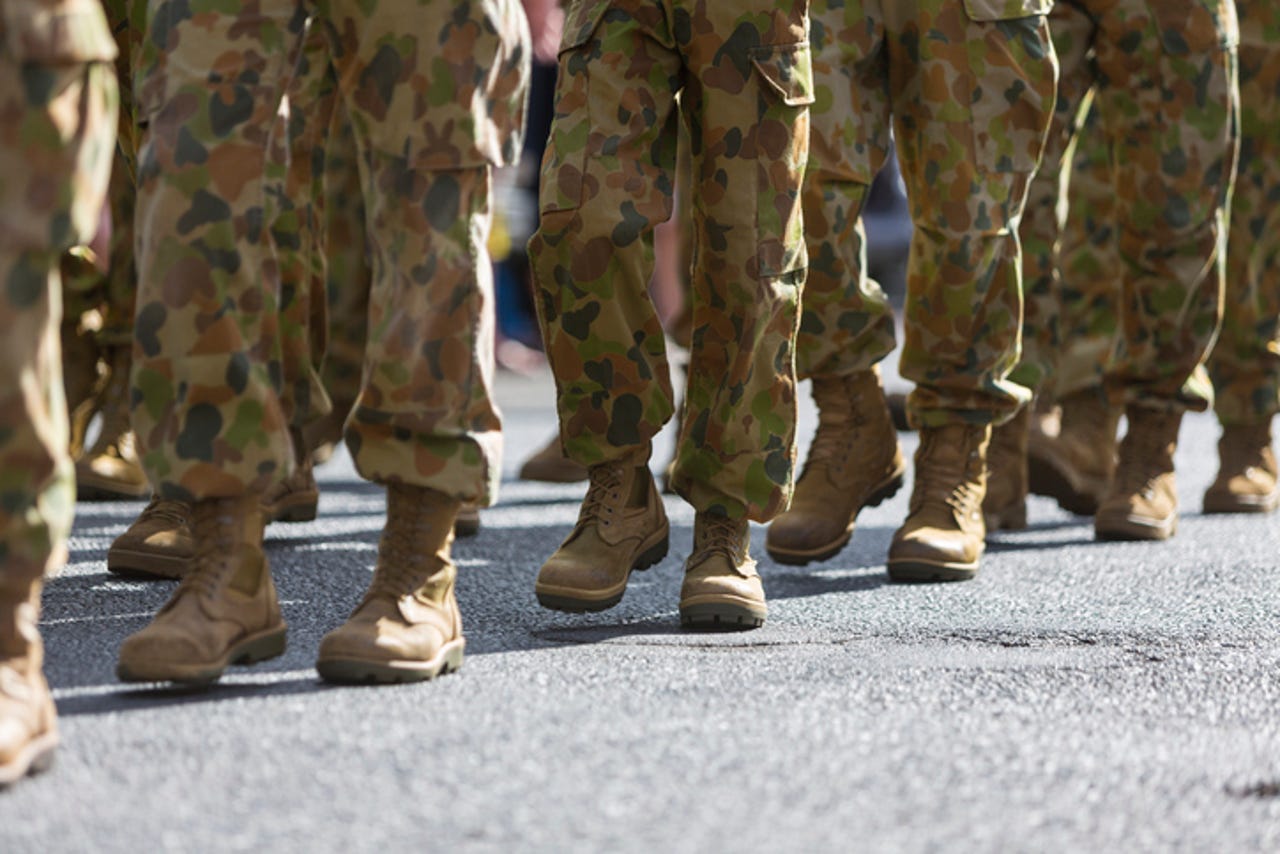































 Image: Getty Images
Image: Getty Images The Commonwealth Scientific and Industrial Research Organisation (CSIRO) previously projected that Australia's emerging quantum technology sector would generate over AU$4 billion in annual revenue and support 16,000 jobs by 2040.
This sector is set to become so significant that Australia's chief scientist Dr Cathy Foley recently told the audience of the virtual Collaborate Innovation 2021 event that it's one industry the country needs to prioritise to remain globally competitive.
Quantum computers offer great promise for cryptography and optimization problems, and companies are racing to make them practical for business use. ZDNet explores what quantum computers will and won't be able to do, and the challenges that remain.
Read now"This is an area that will have a massive impact," she said.
In wanting to take advantage of this burgeoning sector, Australia's Department of Defence has been taking steps to explore ways it can leverage quantum technology, not only for warfare but other areas too.
"Quantum technology is being and will be used in areas such as natural resources, civil engineering, pharmacology, early detection of diseases and medical research, logistics, and finance. Ultimately, quantum technology will pervade every aspect of our lives," a Department of Defence spokesperson told ZDNet.
Defence in fact is already starting to see the early benefits of quantum technology deployment, pointing out that it is using the cryogenic sapphire oscillator, dubbed the Sapphire Clock, which was developed by Australian researchers, to improve the operation of the Jindalee over-the-horizon radar network.
"The Sapphire Clock offers a thousand-fold improvement in timing precision, helping Australian Defence agencies identify threats to the nation," the spokesperson said.
Defence also believes quantum technology could be the alternative solution to GPS as it is not always reliable in complex terrain or where satellite reception is challenging, such as underwater, or in mountainous or dense urban settings. Defence currently uses GPS technology for a variety of defence activities, including precision-guided weapons, cryptography, timestamp intelligence, and synchronising distributed computer systems.
"This will be achieved through the development, miniaturisation, and maturation of quantum clocks, accelerometers, magnetometers, and gravimeters. These will then be fused with classical technologies to provide the best of both worlds for optimal timing and navigation solutions," Defence said.
Other ways Defence intends to explore and exploit the opportunity that quantum technology has been outlined in the Army Quantum Technology Roadmap [PDF]. It highlights that some potential applications of quantum technology could include sensing and imaging, communications and cryptography, and computing and simulation.
Quantum technologies could help military planners, but they might also throw out some unexpected consequences.
"This combination of disruptive potential, ambiguity and complexity presents both strategic risks and opportunities to Land Forces. As a result, Army finds itself in an accelerating global competition to understand, co-develop and exploit quantum technologies for land operations," the report notes.
"Quantum sensing technology provides new levels of sensitivity for sensing things like magnetic fields, acceleration and gravitational fields, which can lead to new capabilities," the Defence spokesperson said.
"Quantum communications technology has the potential to provide the ultimate in secure communications. Quantum computing has the potential to solve problems that cannot be solved by current classical computers."
To further explore quantum technology, the Australian Army ran its inaugural Quantum Technology Challenge last year, which saw teams of Australia's quantum scientists and engineers compete to show how quantum technologies could be conceptually delivered. The specific challenges that were set involved making the ground "transparent" through quantum imaging, resupplying troops while on the battlefield using autonomous ground vehicles, and securing communications through quantum encryption.
The department also recently made a call out for solutions to be presented at next year's Quantum Technology Challenge, tentatively scheduled for August 2022.
Defence said for next year, it wants to test if quantum sensors can detect, locate, and identify electromagnetic emitters with greater precision, range, and bandwidth; see whether quantum computers can identify and classify features in signals and images more precisely and efficiently; and examine if post-quantum cryptography can be practically employed to secure communications from the threat of quantum computers.
The department added that Australia could run the risk of being left behind if quantum technology developed in the country is not supported.
"Australia has world-leading expertise in many areas of quantum technology. These need to continue to be supported and developed in order to avoid Australia being left behind," the spokesperson said.
 Hot Tags :
Innovation
Quantum Computing
Hot Tags :
Innovation
Quantum Computing